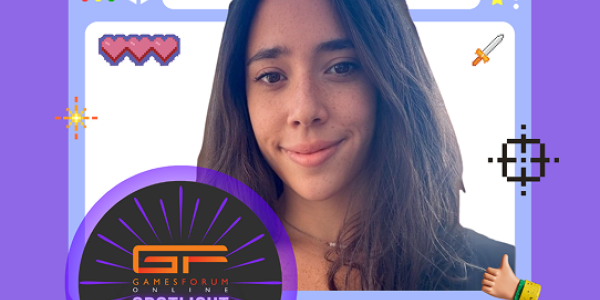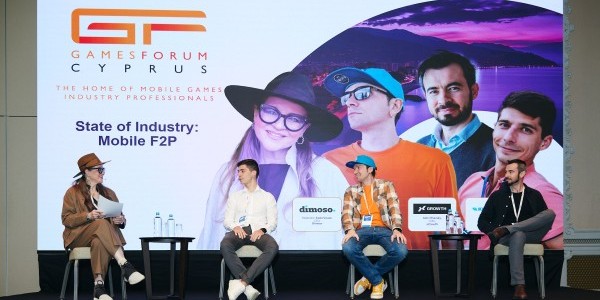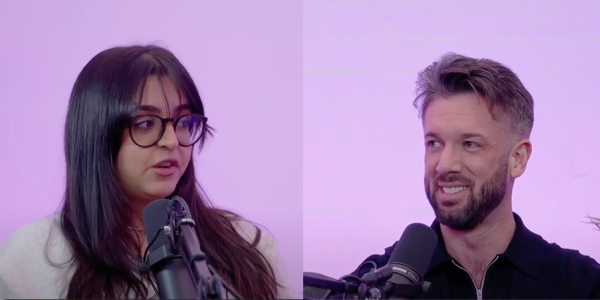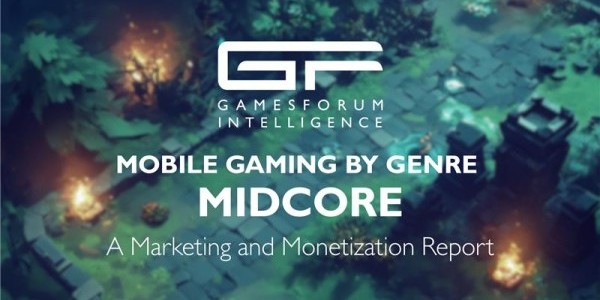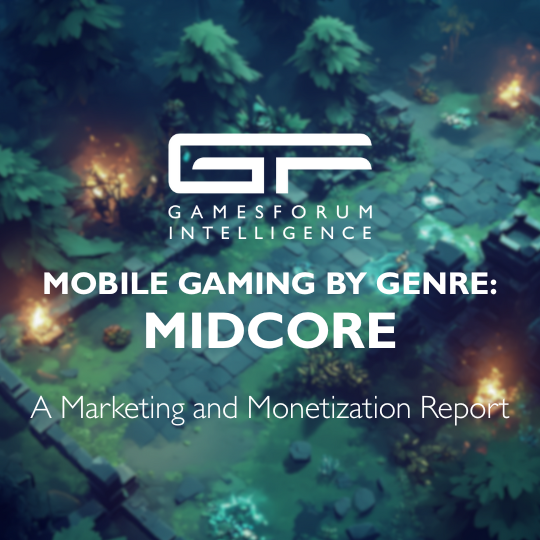Gamesforum Meets: Sameer Sondhi, CEO, Verve Group

Thanks for joining us, Sameer! Can you briefly introduce yourself?
I'm Sameer Sondhi, and I'm currently the CEO of Verve Group. I’ve spent over two decades in the mobile and digital advertising industry, working with various companies like InMobi, Opera Media, and GroundTruth. Today I'm focused on driving our commercial strategies, building strong partnerships, and expanding our global reach for Verve Group. Outside of work, I'm passionate about spending quality time with my family. I'm thrilled to be here today.
Talk to us about your journey in mobile tech so far!
Not to date myself, but my Journey started as an engineer with microprocessor level programming, coding scalable Ad Serving products for Carriers / Publishers and then eventually shifted gears to Sales / Product / Marketing roles. I’ve been extremely lucky to be part of startups and eventually towards large scalable organizations where I can contribute to the Ad Tech ecosystem. In the past several years I joined Verve Group which has turned out to be a rocketship of a ride as we have aggressively built full stack solutions for publishers and advertisers in a short amount of time.
What is Verve Group’s MO?
At Verve Group, one of our main goals—or as we like to call it, our quest—is to make media better. We do this by focusing on delivering excellent outcomes for both publishers and advertisers in a responsible manner, especially in emerging channels. Right now, we’re strong players in the mobile in-app space, working as both a Supply-Side Platform (SSP) and Demand-Side Platform (DSP). Our focus is on app monetization and user acquisition without relying on identifiers.
The industry is currently facing significant challenges, especially in balancing consumer privacy with monetization for publishers and reach for advertisers. The introduction of IDFA on iOS has created new hurdles, but it also presents opportunities for innovation. Over the past 3 years we’ve dedicated a lot of time and resources to help publishers regain revenue and improve user acquisition in this new landscape.
Let’s talk about privacy, how much of a headache has changing privacy regulations been for advertisers?
Changing privacy regulations have been a significant headache for advertisers. Besides navigating regulations, such as GDPR, CCPA, or those enforced by OEMs (like IDFA restrictions), which require substantial adjustments in data collection, targeting, and consent practices, regulations have limited the availability of consumer data, and forced advertisers to find new ways to reach their audiences effectively while respecting privacy concerns. Take Mobile or in-app advertising, for example, with restrictions on IDFA-based targeting. We see in our marketplace that only 25% of the iOS user base is targetable using the device ID. Unauthenticated or IDFA-less iOS devices account for 75% of the entire volume, leaving advertisers with less precise means to reach their target consumers - be it for performance or brand KPIs. The same applies for measurement, which is key to advertisers. The industry is more or less shifting to more probabilistic means of measurement, which is new to many advertisers, and still has a learning curve associated with it.
How have publishers adapted to the uncertainty of incoming privacy changes? What advice do you have for staying ahead of the game?
Privacy changes impact the way publishers interact with their consumers. While monetization is critical for app growth, user retention is paramount for the success of any app. Over the years, publisher partners have enhanced data privacy practices by establishing robust compliance frameworks to adhere to regulations like GDPR or CCPA, and focused on first-party data collection with explicit user consent where the value exchange is strong. Publishers have also begun testing technologies that allow secure targeting of their users and safeguards monetization goals without the need of device IDs. This includes means like broader contextual advertising and newer technologies like cohort-based advertising, neither of which requires PIIs like device IDs.
I believe it’s important that publishers build stronger relationships with ad technology partners including exchanges, DSPs or even advertisers where possible. Most of the privacy-centric initiatives are driven by demand partners, and collaborating with industry groups and advocacy efforts ensure they stay updated and have better influence on future changes.
Looking at ATOM 3.0, what opportunities are there for advertisers in adapting to user privacy?
Today we see almost 75% of the incoming ad requests on iOS without mobile IDs. It’s a matter of time before we see the gradual phase out of GAIDs as well. We know from buyers that the challenge today is to meaningfully identify and target these ID-less users using information that is not available in the bid stream, existing extensions or data vendors/ID graphs that are built on PIIs.
This is precisely what ATOM solves for. ATOM uses machine learning/computing models to process device signals and real-world context of users to predict user traits and classify them into meaningful cohorts like demographic, interests, mobility, attention and others. With the loss of IDs, brand buyers had previously restricted visibility into key audience segments like demographic or interest that were the lifeline of behavioral/ID-based targeting. With ATOM, these segments are recreated without the use of IDs/PIIs, and all data processing and storage happens securely within the user device. Buyers can target ATOM cohorts securely, ensuring targeting is near-precise and performance is on-par with a world with IDs.
What have the team developing ATOM learnt since its beta release in 2021? How has this changed ATOM?
Over the past 1.5 years since our beta launch, we have seen the industry evolve to a stage where there is better appreciation and affinity towards contextual or on-device based technologies for targeting, and that has been a great validation for ATOM. Since our Beta launch, we have made improvements to our Machine Learning/Computing models to ensure cohort precision/relevancy and efficacy. Thanks to the new ML models, we have also broadened our cohort categories, specifically to cover new cohorts that are relevant to performance buyers. We have been working closely with our app partners (Demand) to understand the cohort categories that would be absolutely relevant to each of their performance and brand KPIs. With this launch, we are now bundling a more powerful version of ATOM right within our default ads SDK to guarantee scale from get go. Additionally these cohorts have been validated/improved with seed data and using other methodology for efficacy verification.
Can I tempt you to make a prediction on what is to come next from the major AppStores?
App stores will continue evolving towards greater privacy protection while providing new frameworks and tools to help advertisers and developers adapt to these changes. This balancing act aims to sustain existing advertising models while respecting user data privacy and regulatory requirements. This could include: further refinements to privacy frameworks like Apple's ATT and Google's Privacy Sandbox with better controls for ad tech partners; increased emphasis on on-device processing;more improvements to attribution models that many performance advertisers (app developers) seek today;and outside of ad-monetization, potentially some adjustments to commission structures particularly for smaller developers, or alternative payment methods outside the app stores, as regulatory pressures mount.
What can our attendees expect to hear from the Verve team on the ground at Gamesforum Hamburg?
We will continue to focus on helping our publisher partners and app developers get on board with a more secure means for monetization and app growth to balance performance in a privacy-centric world.
- We will have conversations on ATOM which is now bundled with HyBiD SDK, ensuring publishers can balance video ad experiences with ID-less monetization.
- In addition, we will continue to have conversations and onboard partners on to Dataseat, our contextual UA DSP that is perhaps the only demand platform that operates 100% without IDs.


